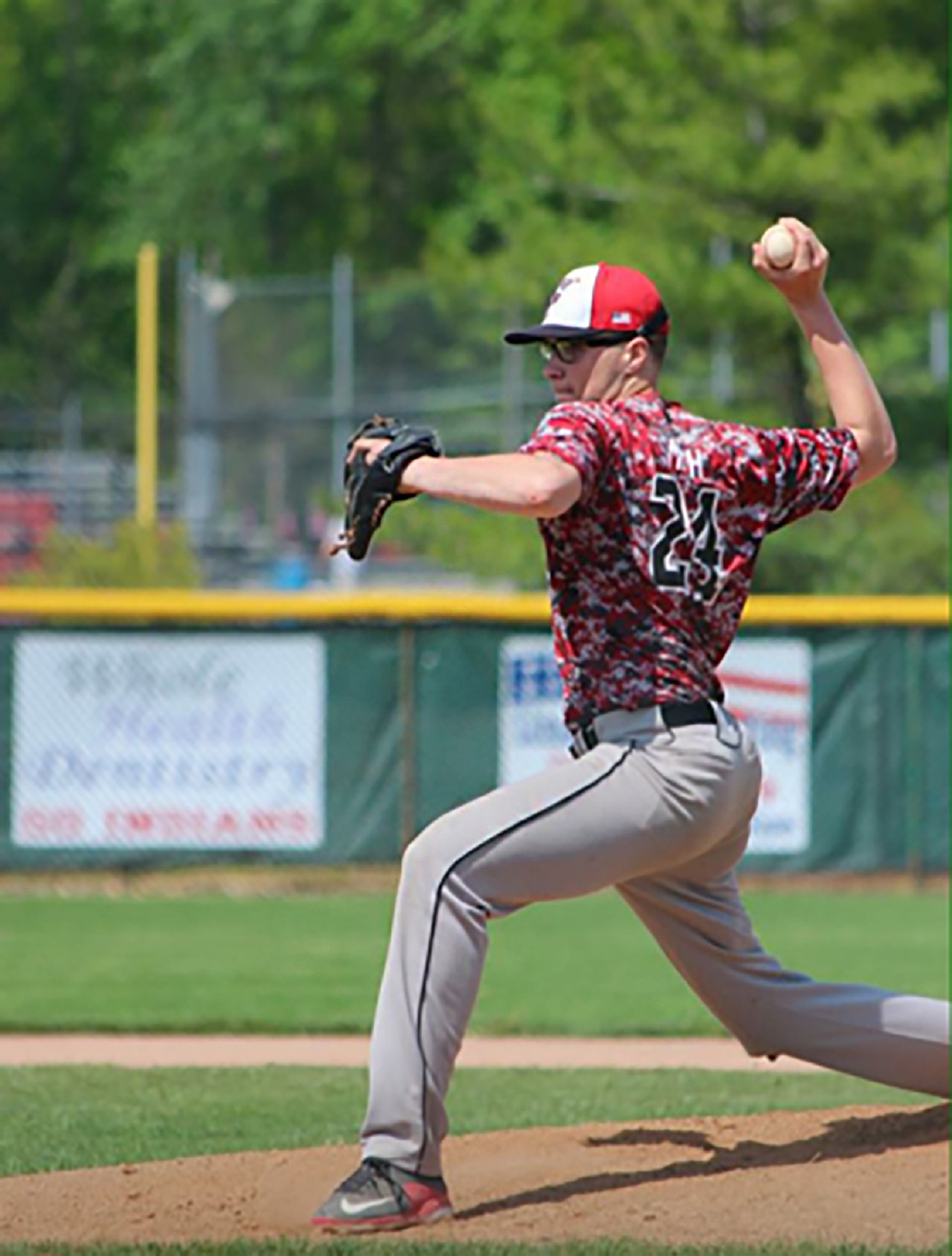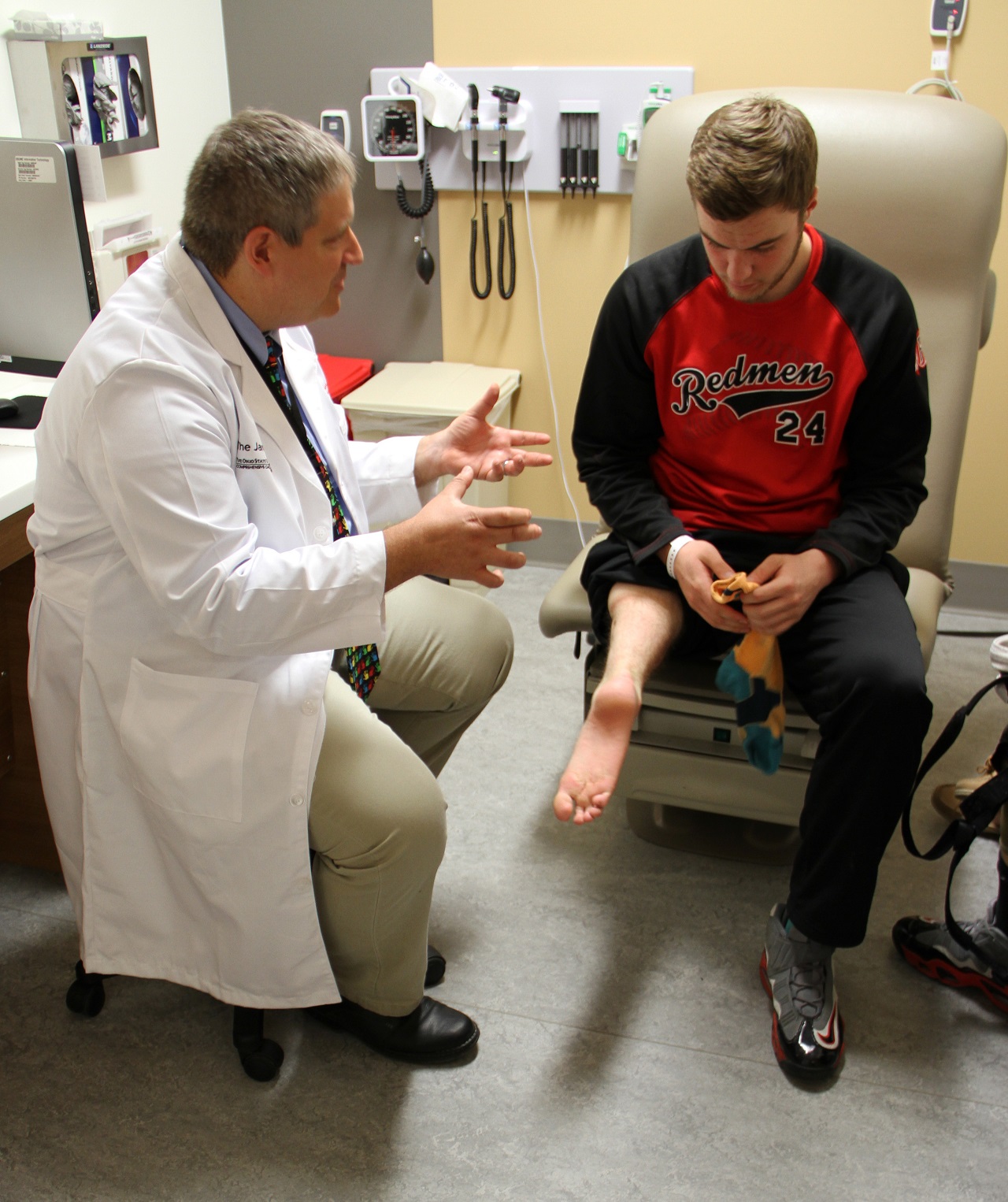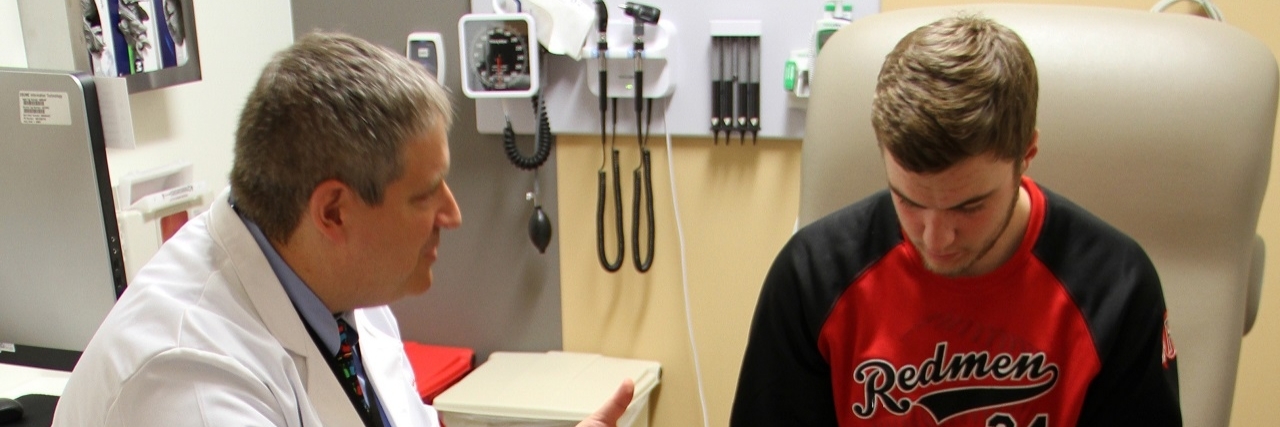When I walked across the stage at Fostoria High School to receive my diploma on June 5, 2016, it was a monumental moment for me and my family. While graduation is obviously a big deal for everyone, walking across that stage signifies something a little deeper for me.
In 2008, at age 10, I was diagnosed with osteosarcoma, a kind of bone cancer that makes up less than 3 percent of all childhood cancers. Treatment required me to have my right leg amputated above the knee. I was devastated. I’ve always been very passionate about playing baseball.
My family was faced with a tough decision, trying to figure out some way to keep me as mobile as possible post-surgery.

With guidance from my orthopedic oncology surgeon, Dr. Joel Mayerson at The Ohio State University Comprehensive Cancer Center – Arthur G. James Cancer Hospital and Richard J. Solove Research Institute, my family chose a complex, uncommon surgery that would let me keep the remainder of my leg, but reattached and backward.
The so-called “backward leg” (rotationplasty) procedure allowed doctors to remove the softball-sized tumor in my leg but leave the nerve that controls my foot intact. The procedure turned my calf into my thigh, my ankle into my knee, and my foot into my shinbone. A prosthetic foot and ankle replaced my former lower leg.
Along with therapy and strength training, rotationplasty gave me the best chance of full mobility. Other surgeries would have required surgeons to rebuild my leg with a metal rod, which would have limited my ability to run, jump and play sports. That’s not what I wanted. I’m grateful that my parents considered my future and chose the path that was right for me when I was too young to do so for myself.

To this day my parents still smile a little when they remember how stressed they were over endless questions about the surgery and my future. Meanwhile, the only question I was concerned about was, “Will I still be able to play baseball?”
The answer, a mystery at the time, was a resounding yes. I’m now 18 and continued to play baseball and basketball throughout junior high and high school. In fact, I may even play baseball in college later.
The next chapter of my life is inspired by my personal experiences as an amputee and cancer survivor. This fall, I will attend Bowling Green State University and study human movement and kinesiology. My ultimate goal is to design modern prostheses for people affected by amputations and limb abnormalities.
I’ve often questioned why I was diagnosed with osteosarcoma and given the challenges I have faced. But this experience has changed my life and helped me look at things differently.
I feel like I need to help people, and that’s why I’m here today. I didn’t understand cancer when the doctors were explaining it to me as a kid. I just thought you died. But today I see beyond that. I tell other kids diagnosed with cancer that it’s going to be a long road, but you have to fight, be determined and just keep going. You can’t let it bring you down.
This story was originally published on The Huffington Post.
The Mighty, in partnership with Fuck Cancer, is asking the following: Write a letter to yourself in regards to a cancer diagnosis. What would you say or wish someone had told you? Find out how to email us a story submission here.

